- Ohio University-lancaster branch is one of five Regional Campuses of Ohio University serving southeastern Ohio and the neighboring communities of West Virginia and Pennsylvania. Ohio University was established in 1804 as the first university in the state of Ohio and the Northwest Territory.
School Highlights
Ohio University-Lancaster Campus serves 3,670 students (15% of students are full-time).
The college's student:teacher ratio of 41:1 is higher than the state community college average of 23:1.
Minority enrollment is 16% of the student body (majority Black and Hispanic), which is less than the state average of 38%.
Quick Stats (2025)
- Enrollment: 3,670 students
- In-state tuition: $5,060
- Out-state tuition: $9,596
- Student:teacher ratio: 41:1
- Minority enrollment: 16%
- Source: Integrated Postsecondary Education Data System (IPEDS)
Top Rankings
Ohio University-Lancaster Campus ranks among the top 20% of public schools in Ohio for:
Category
Attribute
School Resources
Community Size
School Overview
The teacher population of 89 teachers has stayed relatively flat over five years.
Ohio University-Lancaster Campus
(OH) Community College Avg.
Carnegie Classification
Associate's Colleges: Mixed Transfer/Career & Technical-High Nontraditional
Baccalaureate/Associate's Colleges: Mixed Baccalaureate/Associate's
Institution Level
Four or more years
At least 2 but less than 4 years
Institution Control
Public
Private not-for-profit
Total Faculty
89 staff
93 staff
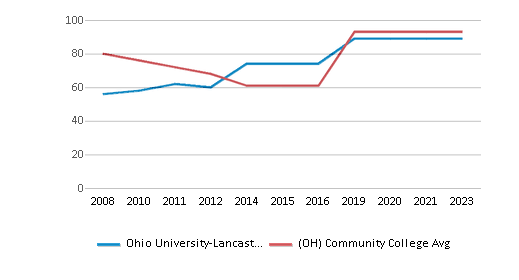
School Calendar
Student Body
The student population of Ohio University-Lancaster Campus has grown by 44% over five years.
The student:teacher ratio of 41:1 has increased from 28:1 over five years.
The Ohio University-Lancaster Campus diversity score of 0.29 is less than the state average of 0.58. The school's diversity has grown by 6% over five years.
Total Enrollment
3,670 students
533 students
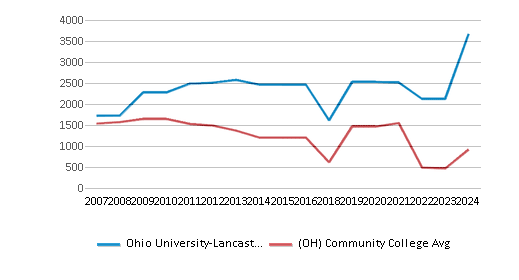
Student : Teacher Ratio
41:1
23:1
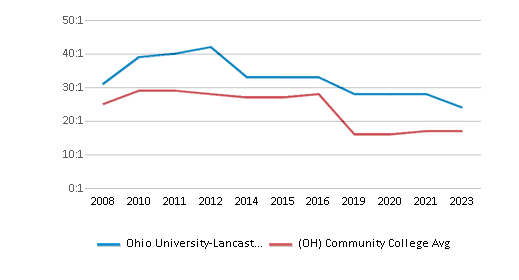
# Full-Time Students
568 students
397 students
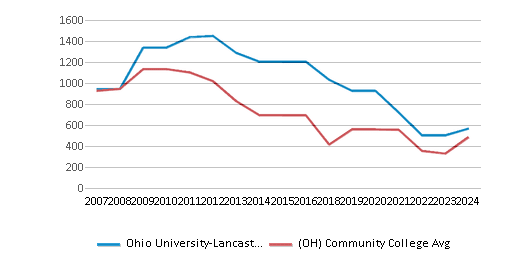
# Part-Time Students
3,102 students
360 students
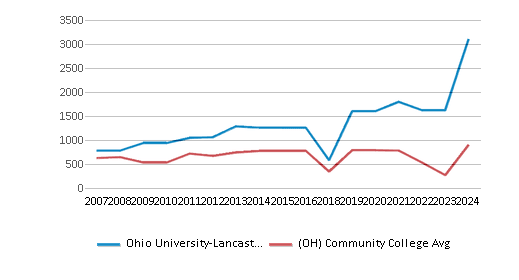
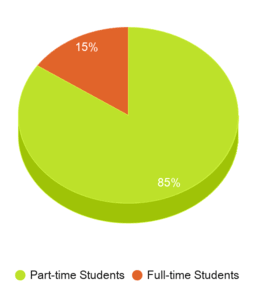
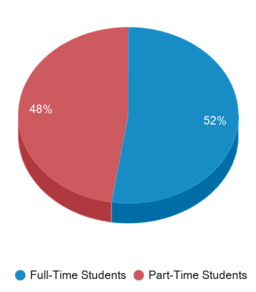
# Enrollment Undergraduate
367 students
308 students
# Full-Time Undergraduate Students
568 students
385 students
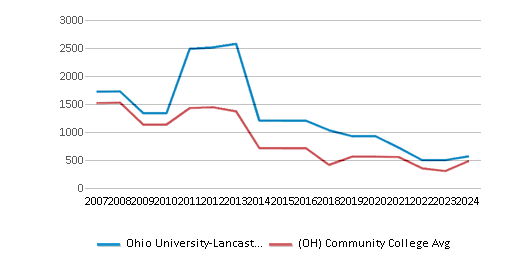
# Full-Time Graduate Students
n/a
10 students
# Part-Time Undergraduate Students
3,102 students
380 students
# Part-Time Graduate Students
n/a
3 students
Total Dormitory Capacity
n/a
425 students
% American Indian/Alaskan
n/a
n/a
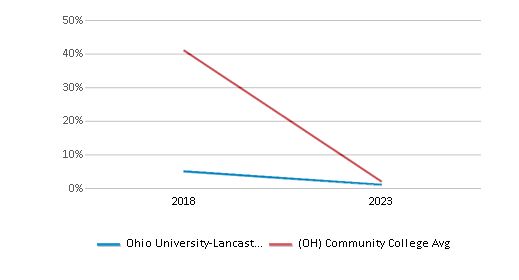
% Asian
1%
4%
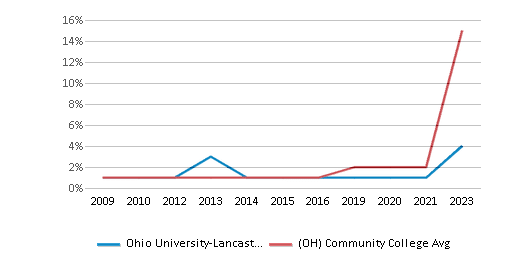
% Hispanic
3%
6%
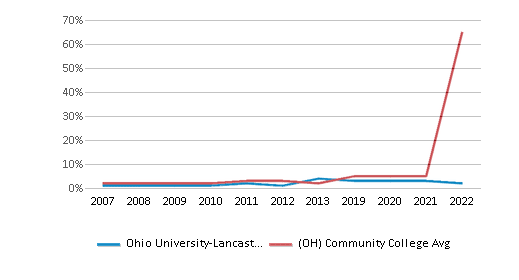
% Black
4%
15%
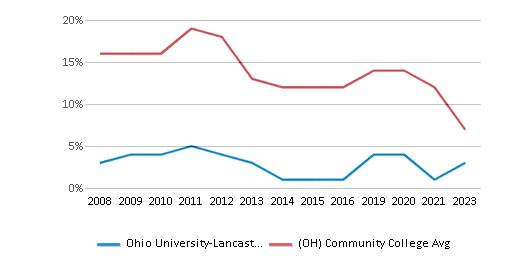
% White
84%
62%
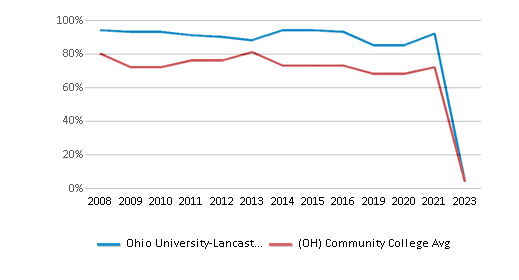
% Hawaiian
n/a
2%
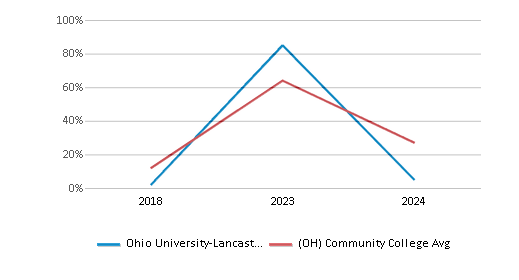
% Two or more races
4%
4%
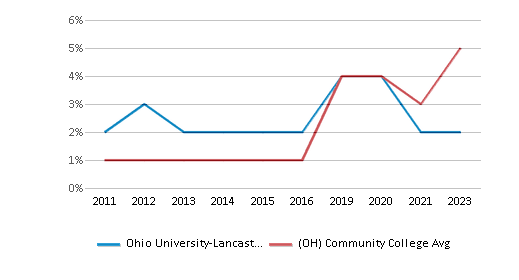
% Non Resident races
1%
1%
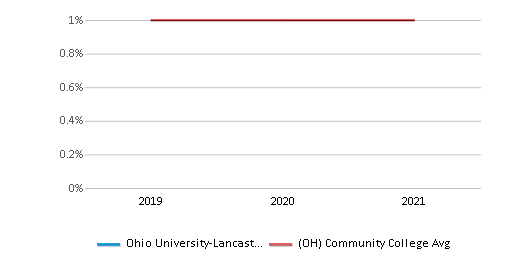
% Unknown races
4%
6%
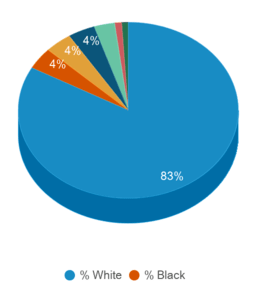
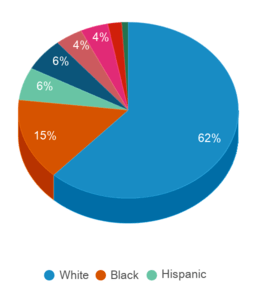
Diversity Score
0.29
0.58
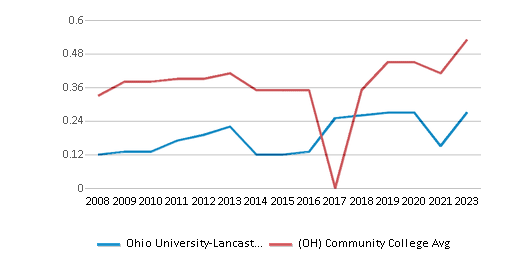
College Completion Rate (Students who graduate in less than 4 years)
n/a
0.5417%
College Completion Rate (Students who graduate in 4 years or more than 4 years)
0.1257%
0.2197%
Average Graduate Earnings (10 Years)
$43,700
$31,900
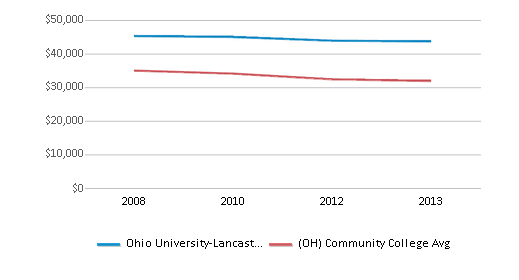
Tuition and Acceptance Rate
The public in-state tuition of $5,060 is more than the state average of $5,023. The in-state tuition has declined by 10% over four years.
The public out-state tuition of $9,596 is less than the state average of $10,825. The out-state tuition has grown by 10% over four years.
In-State Tuition Fees
$5,060
$5,023
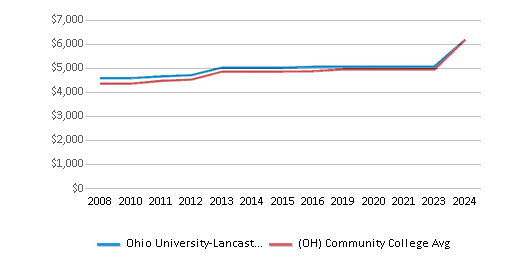
Out-State Tuition Fees
$9,596
$10,825
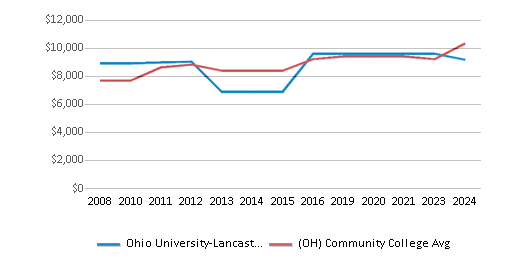
% Students Receiving Some Financial Aid
98%
88%
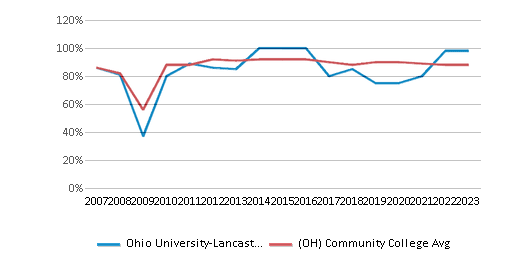
Median Debt for Graduates
$20,629
$18,500
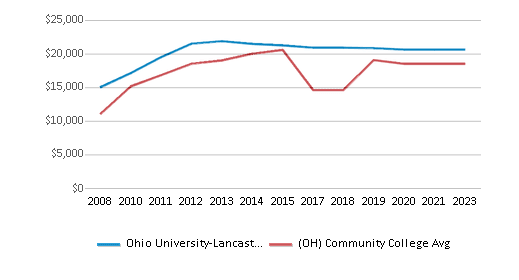
Median Debt for Dropouts
$7,333
$6,500
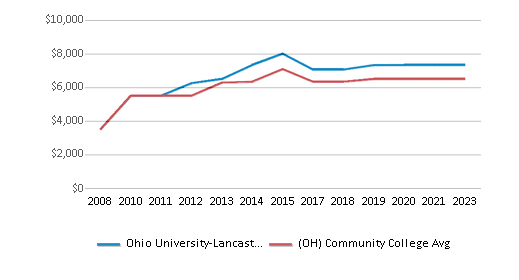
Acceptance Rate
n/a
73%
SAT Reading
n/a
460
SAT Math
n/a
475
SAT Writing
n/a
465
ACT Composite
n/a
21
ACT English
n/a
20
ACT Math
n/a
20
Source: 2024 (or latest year available) Integrated Postsecondary Education Data System (IPEDS)
School Notes
- Fifty years ago Ohio University extended courses and services to Lancaster and Fairfield County. Now the Lancaster Campus serves over 1700 students annually who are seeking associate's, bachelor's, or master's degrees. Many students join us directly from high school; many return to the classroom after taking time for employment or family; some transfer from other colleges, universities, and technical schools; and still more take courses in summer or during intersession for credits toward their programs at other schools. Academic Degrees are offered in Post-Secondary education, College Tech Prep programs prepare more young adults for the evolving technology workforce, Associates - a degree awarded upon completion of a two-year program of study, Bachelors - A degree awarded upon successful completion an undergraduate course of study in the aspects of science, technology, arts or humanities and Masters - A degree awarded after one to two year's of post-graduate study. Services available to students include academic advising, career counseling and job placement, developmental courses, a Tutoring and Learning Resource Center, and state-certified child care for the children of our students. Students enjoy participating in Alpha Phi Omega, Phi Theta Kappa, L.E.A.D., intercollegiate and intramural athletics, cultural events, political activities, and discussions.
Frequently Asked Questions
How much does Ohio University-Lancaster Campus cost?
Ohio University-Lancaster Campus's tuition is approximately $5,060 for In-State students and $9,596 for Out-State students.
What is Ohio University-Lancaster Campus's ranking?
Ohio University-Lancaster Campus ranks among the top 20% of community college in Ohio for: Percent of students receiving financial aid and Largest student body.
Recent Articles

Obtaining Your Bachelor's Degree at a Community College
Explore the evolving landscape of community colleges offering bachelor's degrees, addressing affordability, accessibility, and workforce needs.

A to Z of Community College Certificates and Courses
From business and healthcare to technology and skilled trades, the article showcases the breadth of options available to students seeking to enhance their knowledge, develop new skills, or pursue career advancement.

What is a Community College?
This comprehensive guide explains what a community college is, its history, and its role in higher education. It covers the types of programs offered, differences from four-year colleges, benefits of attending, and important considerations for prospective students, providing valuable insights for those exploring educational options.













